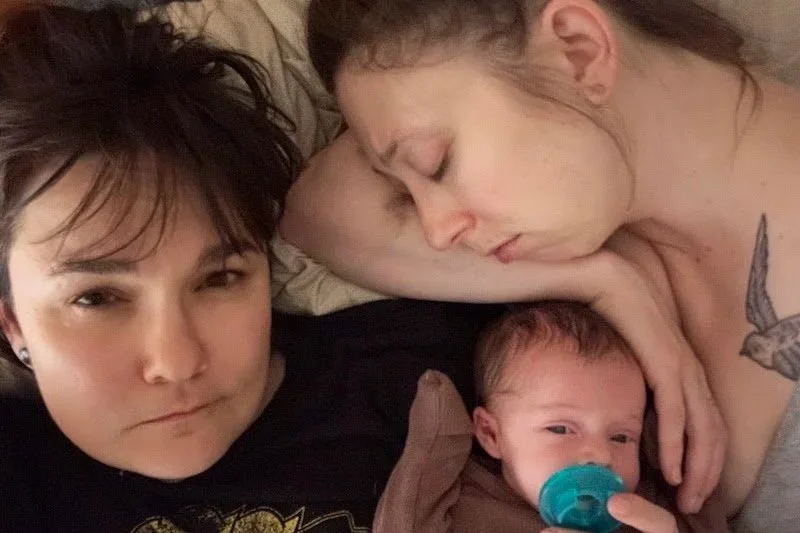If you’re preparing for birth or the early postpartum season, this is for you.
At Brave Birth, I teach childbirth education that goes beyond labor positions and birth plans. We talk about the real-life dynamics that unfold once the baby arrives — how to stay connected, supported, and human while navigating those early weeks.
The Early Season of Parenting
The early season of parenting tilts heavily toward the person who gave birth, no matter how much you plan for balance or division of labor.
If you’re feeding or pumping milk for your baby, this increases the imbalance from a sheer time perspective. It’s not a competition. It’s just a fact. If you’re feeding your baby from your body, you’re putting in the equivalent of a full work week in a seven-day span.
Let’s talk about it.
When Anxiety Runs the Show
I remember the month before Frankie came, I kept thinking, “I can’t wait to share this baby with other people. I’ve been carrying her for so long and I’m ready for a little break.”
And then she came out, and the first person who held her for too long made me so anxious I thought my teeth might chatter their way out of my head.
Almost everyone experiences some version of a postpartum mood shift. Mine was severe, but that doesn’t mean yours will be. My anxiety started making every single decision. Very few people had room to suggest any other way to care for her.
My brain told me I had to make all the decisions to keep her safe. It wasn’t true, but it made it hard for my partner to be an equal parent and for me to rest.
The Head Start
One of my favorite mentors, Barb Buckner-Suarez, always says, “The birthing parent gets a year head start in relationship with the baby.”
I remember thinking, “Not my wife and I. We have two uteruses. We’ll be equal parents.”
And then came breastfeeding, co-sleeping, and all the things that create physical space between you and your partner. Those things also created emotional distance. There’s simply not enough time to do all the things. I kept the baby alive, and she kept us alive. That was our division of labor.
This doesn’t happen because we’re controlling (though sometimes we are). Or because we want to be in charge (though sometimes we do). It happens because we somatically have a head start. That tiny human was built from us, inside us.
The baby has been living inside our bodies, listening to our heartbeat, syncing their breathing to ours, memorizing the rhythm of our hormones and blood flow. It’s not just comfort — it’s the tiniest, coziest home they ever decorated. Their little baby sofa is cozied up to the uterus juuuuuuuust right.
So when that baby arrives, they’re already fluent in one language. They know exactly where the remote is. The physiology of the person who birthed them is Bible. Everyone else is still learning the dialect.
The Long Separation
It took my daughter a minute — okay, about 18 months of minutes — before she really started to see herself as separate from me. Before others could read her cues as quickly or respond as seamlessly as I could.
And this was hard for my wife and me. For a long time, our daughter only wanted me. We weren’t ready for that reality. We didn’t know how to make space for what we didn’t yet understand. But that didn’t mean we were doing it wrong. It meant we were learning, and learning comes with mistakes.
As the stay-at-home parent, I leaned further into caregiving while my wife had less space to find her footing. There are only so many minutes in a day before and after work, and weekends belong to everyone.
We laid the foundation of our baby leaning deeply on one of us. It took time, fumbling, and forgiveness to spread the balance more evenly.
The Work of Negotiation
Every family has to figure this out differently. Your division of labor isn’t mine to calculate, and mine isn’t yours. The work is in learning to negotiate and finding your language together. That’s the sweet spot of early parenthood.
Everyone gets dealt their own hand — some of it’s luck, some of it’s strategy, and some of it’s surrender. There’s an element of control you simply don’t get when you’re bonding with a brand-new human, even if they share your DNA (which my daughter and I don’t).
So how did we start to shift? How did we make space to be people, partners, and parents?
We learned to negotiate time off, time to ourselves, time together, and time apart — without tension. We have the same conversation over and over: “Are you getting what you need?”
The answer is often no, lol. But that’s okay. We keep the conversation open. Fights end quicker, needs are met sooner, and family life flows easier. So much so that we’re even thinking about a second baby.
The First Big Negotiation
It doesn’t matter what your negotiation is, but the non-birthing parent needs to own something.
For my wife, that was bedtime. It started sometime after Frankie’s first birthday. Now, barring extenuating circumstances, every night they toddle down the hallway to do God knows what — read, sing, and cuddle.
It used to be fraught with tears for everyone. Now, it’s all giggles and “Bye, Mommy!”
That kind of trust can’t be rushed. It’s built over time, through consistency, and by the birthing parent learning when to step aside.
Time Is the Real Teacher
Every household’s path is unique. Maybe both parents work outside the home and no one is breastfeeding, so the division of comfort is more balanced from the start. Maybe it’s not, and it takes longer to form that ground.
And that’s okay.
Because it’s not about doing it right — it’s about giving it time.
Time to figure out how to be a person with the demands of parenthood.
Time to learn how to be partners in a new way.
Time to grow into being parents, together.
So plan for that. Plan for the time you’ll need to figure it all out. Plan for it to be hard. Plan to forgive. Plan to love each other through the thinnest of veils.
If you can stay open to the mess and the mistakes, you’ll find your rhythm.
Learn more about Brave Birth’s monthly childbirth education classes.
Taught with humor, honesty, and evidence-based care for growing families.
👉 www.bravebirth.com/childbirth-class
Why does my baby only want me?
Most newborns prefer the birthing parent because they know their smell, hormones, voice, and heartbeat. It is biological, not personal, and it changes with time and consistency.
How can the non-birthing parent bond with the baby?
Repetition, predictability, and owning one daily routine (like bedtime, baths, or morning wake-ups) helps create secure attachment.
How do we divide labor fairly in early postpartum?
Focus on equity, not equality. The birthing parent is physically doing more in the beginning. Partners can handle everything else: food, laundry, appointments, communication, household logistics.
Do childbirth classes help with postpartum?
Yes. Classes that include postpartum planning, partner communication, and division of labor reduce overwhelm and help families adapt faster.
Written by Nicolette Ferrell, Certified Childbirth Educator
Founder of Brave Birth
Supporting families in Portland and LGBTQIA+ families worldwide through evidence-based childbirth education and postpartum preparation.

